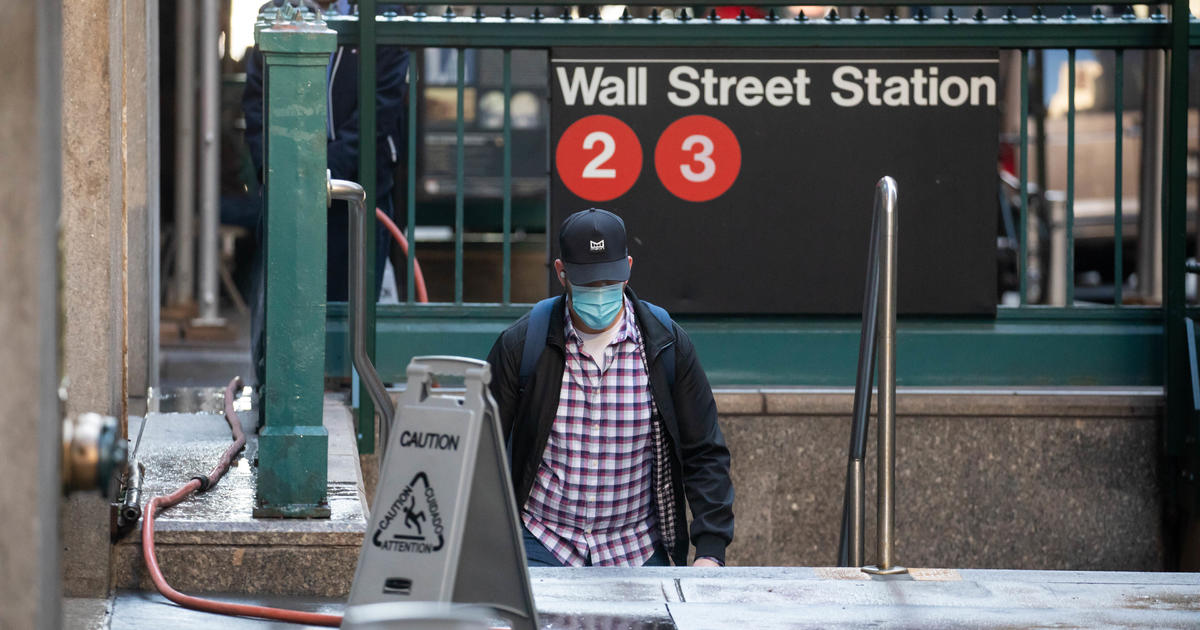Stocks fell precipitously on Friday, rattled by news of a new coronavirus variant that led several countries to impose travel restrictions.
The Dow, which plunged more than 1,000 points midday, closed 2.5% lower at 34,899 — the worst trading day of the year for the blue-chip index. The S&P 500 dropped 2.3%, its biggest retreat since February, to close at 4,594 and the tech-heavy Nasdaq lost 2.2%, closing at 15,491.
Investors were rattled by news of a COVID-19 variant detected in five African nations that could be more infectious than earlier varieties. Scientists caution that more data is needed to determine how infectious the variant is and how it holds up against vaccines. The variant, whose technical name is B.1.1.529, in recent days has been detected in Hong Kong, Israel and Belgium, according to media reports.
The World Health Organization has said the new strain, dubbed “Omicron” after the Greek letter, is a variant of concern. In a statement on Friday it noted that early evidence on the new strain “suggests an increased risk of reinfection,” it said in a statement.
“While headlines are alarming, scientists are still researching how transmissible and severe it is, and whether current vaccines are effective,” analysts with TD Securities told investors in a research note. “Further evidence of spreading cases in Europe and beyond are likely to weigh on markets, and may lead to faster lockdowns.”
On Friday afternoon, the U.S. restricted travel from seven countries in Southern Africa. The United Kingdom, France and Israel have cancelled direct flights from South Africa and four surrounding nations, and the European Commission has proposed halting all air travel between its 27 member nations and southern Africa.
Investors sold off travel stocks, with Royal Caribbean Cruise Lines falling 13%, while United Airlines dropped 10%. The price of Brent crude oil also dropped sharply, losing 10% to fall to $72 a barrel.
“Sectors and countries most exposed to the pandemic (tourism, energy, etc.) have been hit hardest. We expect those patterns to persist in the near term as investors digest the implications of the new variant,” Neil Shearing, group chief economist at Capital Economics, said in a report Friday.
The extent to which the new strain is resistant to vaccines or deadlier than previous strains will determine how governments respond as well as any economic impact, Shearing noted.
However, unlike earlier strains, Omicron is coming to the fore at a time when the global economy is straining, he said. “Supply chains are already stretched. A virus-related surge in goods spending, or port closures, would exacerbate existing supply strains and add upward pressure to goods inflation,” Shearing wrote. Meanwhile, the potential of an infectious new viral strain could cause more workers to leave the labor market, he added.
“One worst-case scenario involves the entire immunization process having to start from scratch, while the most benign outcome would be the discovery that ‘Omicron’ is neither much more transmissible nor deadly than earlier variants and that existing vaccines are effective against it,” Barclays analysts said in a report.
On Friday, fears of the worst case contributed to the selloff.
“The new variant news has brought with it a sell first and ask questions later mentality,” said Ryan Detrick, chief market strategist for LPL Financial.
The Associated Press contributed reporting.
Download our Free App
For Breaking News & Analysis Download the Free CBS News app
